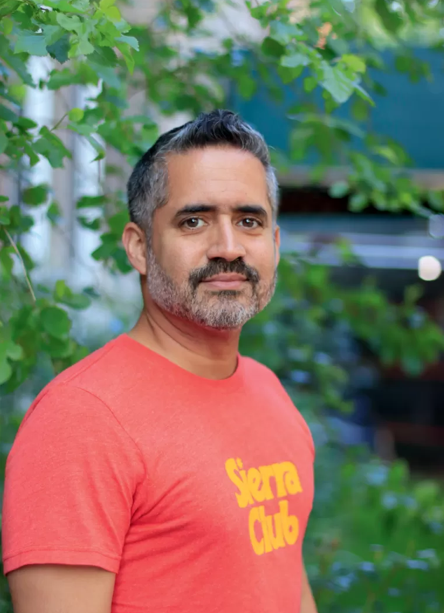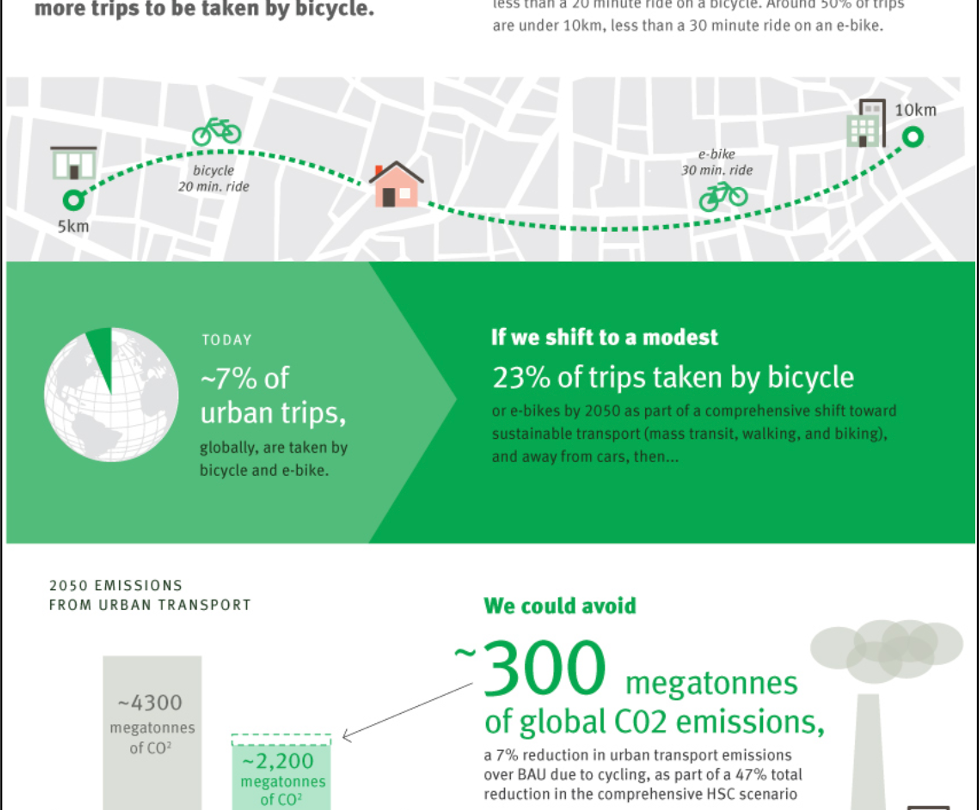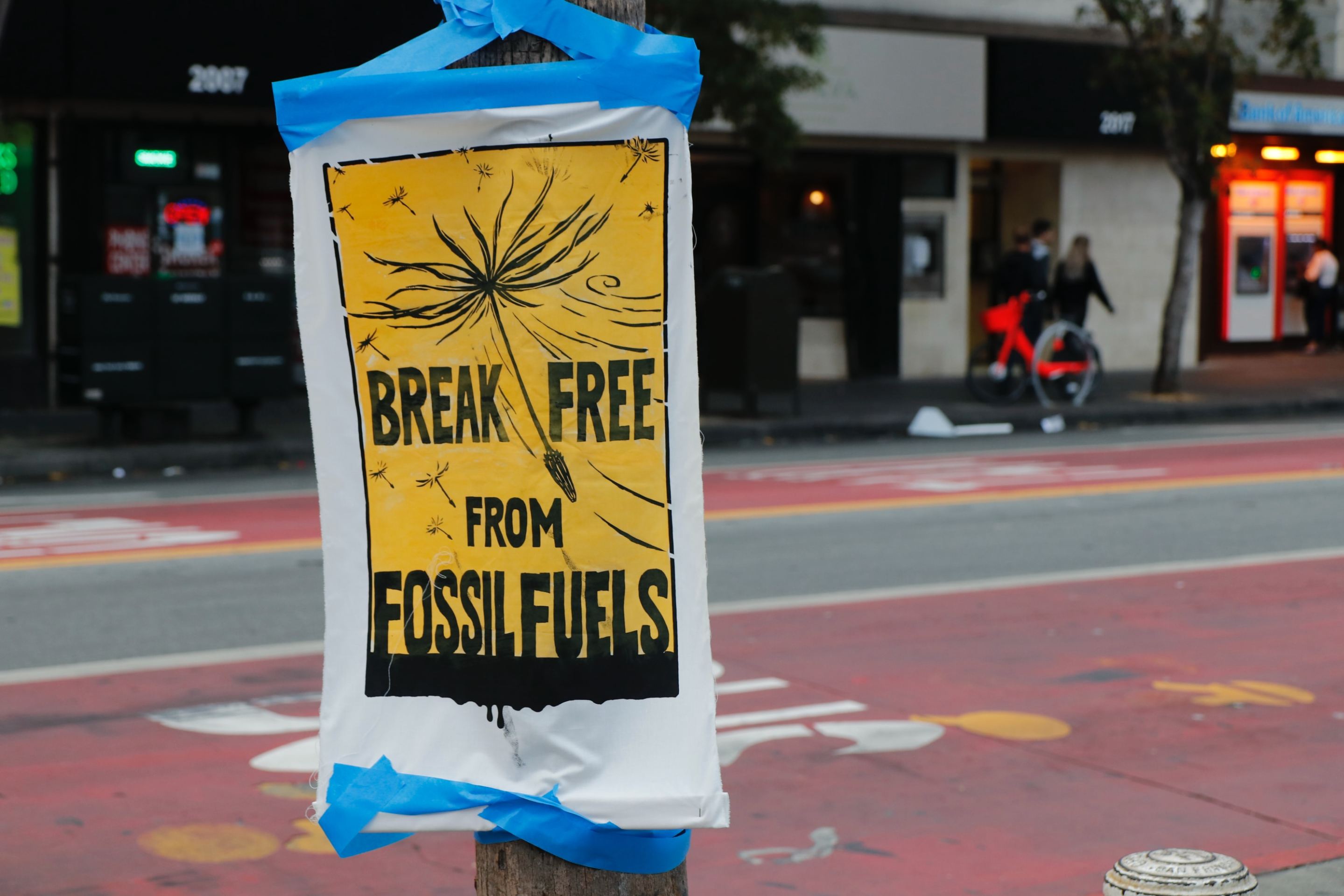Going a single week without getting in a car shouldn't be difficult. In countless car-dependent American cities, though, it's all but unthinkable.
That's part of why America Walks will launch the National Week Without Driving Challenge on Oct. 2 with the goal of helping everyone, but especially elected officials, understand the barriers faced by non-motorists (particularly if they have disabilities that make driving impossible.)
Week Without Driving not only seeks to build support for policy changes that make active and shared modes the obvious choice, rather than dangerous and inconvenient. It's also about simple math: Passenger cars currently make up over half of U.S. transportation sector emissions —which is itself the country's largest source of pollution — and unless Americans start driving less, experts predict that we'll fall short of our climate goals, even if we rapidly electrify our vehicle fleets.
We sat down with former Sierra Club President and Princeton University visiting professor Ramón Cruz to talk about why he's supporting the challenge, and why he's challenging political leaders and environmentalists to experience the world beyond the windshield. We spoke to him by phone (fittingly enough, while he was riding a train.)
This interview has been edited for clarity and length.

Streetsblog: Tell me why you’re supporting the week without driving campaign, and why you think other climate leaders and advocates should do the same.
Ramón Cruz: There are a few layers there, but for one, this campaign is showing elected officials, decision-makers, and policymakers the willingness of a population to change [how they get around], as well as the importance of mode shift and public transportation.
And it’s also important to let people get a taste of what could be. I’m an active cyclist; I don’t have a car, and because I live in New York City, it’s easy to do that. And I’ve helped introduce many people to cycling, because some still people say, "'"Well, it’s too dangerous to bike in New York." But it's actually not bad, especially with Vision Zero and drivers' miles per hour being restricted. There’s much more infrastructure to bike safely now than there was 12 or 15 years ago.
These campaigns are good for people to see it first hand. You might not have instant, complete modal shift, but you might say, "Wait, that last kilometer [of my journey] is possible through active mobility. if I bike from home to the station, or if I take bike share, it could work." That kind of campaign is important to help people envision themselves shifting [their habits.]
Streetsblog: What would you say to people who are considering this campaign who don't live in cities that make it easy not to drive?
Cruz: It’s certainly not easy everywhere, especially in places where you have all these highways that disrupt neighborhoods. ... In other countries with different mentalities, individuals and private [actions] aren’t necessarily the central thing. It's the collective. Then you usually have much better systems, because it’s not dependent on the users, but on society as a whole. Those collective choices are so important, and that’s why we need to vote, and elect leaders who prioritize [making better] collective choices.

[With that said], I think one purpose of this [campaign] is to see how, if you don’t have many [mobility] choices, can you think of some ways of improving your carbon footprint? … In the sustainability world, we have the avoid/shift/improve/paradigm. So, what are the trips that I can avoid? Let’s start with those one. Can I shift to another mode? Let's do that. If can’t, can I switch to an electric vehicle? Can I change the tires? Can I be more diligent about checking the air on the tires? Not to pass judgement on anybody’s choices, but we all have opportunities — and responsibilities — to improve.
Streetsblog: Since you brought them up, let's talk about electric vehicles. Most of the advocates I cover certainly don't want cars to run on gas, but they also worry that EVs are being treated as a climate panacea, when mode shift is truly not optional to decarbonize the transportation sector. They also worry about how EVs might replicate the problems of car dependency beyond just the tailpipe. How do you balance encouraging people to drive less with encouraging people to drive battery-electric when they must drive — and what advice do you have to other environmental leaders who are negotiating that tension?
Cruz: It shouldn’t be either/or. When you put all your efforts into EVs, you’re still not improving quality of life. Cleaner traffic is still traffic; it’s still horrible to spend two hours [in a car], even if you’re polluting less. It’s still not getting at the core of the problem: that we’re building these cities in ways that are not sustainable, and not sustaining our quality of life. At the same time, climate change is a real threat that is the biggest challenge humanity has ever faced, and market forces are an important way [to help confront it]. But that’s not a reason to think that one can’t do more to [prioritize] those "avoid" and "shift" solutions.
This is why we need a coalition or much more than environmental leaders. You need racial justice advocates; you need housing advocates; you need economic and social justice advocates; you need veterans and youth advocates — you need advocates for everyone who can benefit from mobility. Because ultimately, the goal is mobility, to help people reach their potential. And you need that big coalition advocating for much more than just planning and environmental [policy].
Streetsblog: Who do you hope will take the Week Without Driving challenge?
Ideally, the decision makers who have the power to redirect funding to all this. That’s where the challenge is. We don’t need to [preach to] the choir that this is important.
An earlier version of this article identified Ramón Cruz as the current president of the Sierra Club. He is actually the former president. We regret the error.






